PROTECT YOUR DNA WITH QUANTUM TECHNOLOGY
Orgo-Life the new way to the future Advertising by AdpathwayHurricane Melissa has torn through the Caribbean, slamming into Cuba while leaving parts of neighbouring Jamaica broken and reeling from ferocious winds and extreme rainfall.
The effects of the colossal hurricane were felt across the region, even in countries that were not directly in its path. In nearby Haiti, residents of a small town were mourning the death of 25 people swept away in floods.
The most intense tropical cyclone to hit Jamaica in nearly two centuries, Melissa is one of the strongest Atlantic hurricanes observed since record-keeping began. Climate scientists say human-caused global heating has contributed to the rapid intensification of modern-day storms.
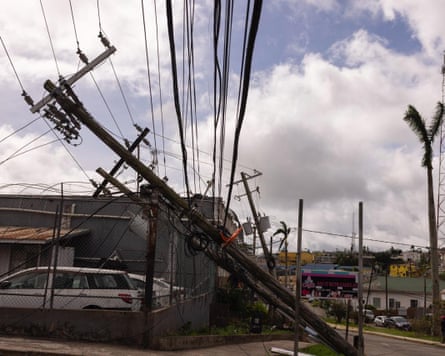
Many Jamaicans woke up on Wednesday without power, with reports of whole neighbourhoods submerged. The prime minister, Andrew Holness, has declared the country a disaster area, giving authorities extra powers such as issuing mandatory evacuation orders for flooded regions and preventing price gouging.
Massive damage was reported across the island, much of it in the westernmost parts, where the category 5 cyclonic storm moved diagonally across ground at a slow pace, ripping roofs from buildings and flipping over cars. Photos showed a tree ripped out of the ground by the roots and roads submerged by gravel and earth.
Jamaica’s minister of local government, Desmond McKenzie, said the hurricane was “one of the worst experiences that [Jamaica] has ever encountered”.
“Our infrastructure has been severely compromised,” he said. “The entire [Island of] Jamaica has felt the brunt of Melissa.” There are close to 15,000 people in shelters and more than 530,000 without electricity, in a country of 2.8 million.
In Mandeville, the capital and largest town in the parish of Manchester, residents were thankful that they were not as badly hit as other parts of the island, even if serious damage was visible.
The city’s streets were strewn with the detritus the hurricane left in its wake – fallen trees blocked roads, some homes had their roofs missing and power lines had been downed.
One resident, Jack Gardner, 43, said the hurricane was “very deadly” but that his home had stayed up.
“I wasn’t scared,” he said. “I get used to the storms.” Gardner said he had lived through storm Gilbert in 1988 as a child, storm Ivan in 2004, and storm Beryl, which hit Jamaica last year. Storms are named only when they are expected to have a severe impact.
Another resident of Mandeville, Lisa Henry, also said she had not been scared. “I was mostly praying,” said the 35-year-old. “I just passed the school, Manchester High, and the top [had been] ripped up,” she said. “Yes, it’s going to take back the country.”
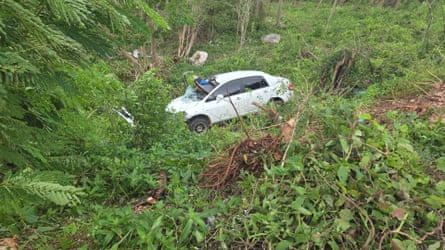
Henry works as a carer for an elderly woman, but said the woman “was not much aware of what was really going on, what was taking place”.
Jamaica’s government was still assessing the extent of the damage on Wednesday, but the UN’s resident coordinator in the country said there was “tremendous, unprecedented devastation”.
“We have people living in shelters across the country,” said Dennis Zulu in a press briefing, “and at the moment, what we are seeing in preliminary assessments is a country that’s been devastated to levels never seen before”.
Alexander Pendry, the global response manager at the British Red Cross, also said early indications suggested Melissa was an “unprecedented catastrophe for the island”.
The priority of the Jamaica Red Cross, he said, was to bring aid to people as soon as possible. “Tragically, experience tells us that the impact on communities and individuals will be shattering and long lasting,” he added.
Jamaica’s transport minister, Daryl Vaz, said authorities were rushing to make sure airports could reopen as soon as it was safe and practical to get aid into the country. During a visit to Norman Manley international airport in the capital city, Kingston, the minister said he was aiming for relief flights to be able to land as early as Thursday.
“The devastation is unimaginable,” he said. “Every hour is an hour lost, and we don’t have the time.”
Despite not being hit directly by the hurricane, other Caribbean countries have been affected. Authorities in Haiti said 25 people had been killed in floods. La Digue River, in the coastal town of Petit-Goâve, overflowed its banks, flooding homes and sweeping away adults and children.
Jean Bertrand Subrème, the mayor of Petit-Goâve, said dozens of homes had collapsed and people were still trapped. “I am overwhelmed by the situation,” he added, as he pleaded with the government to help rescue victims.
Three deaths have been reported in Jamaica and one in the Dominican Republic, where another person remains missing.
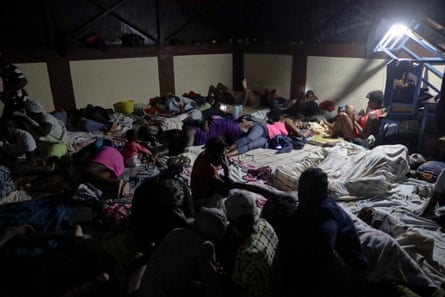
A category 5 hurricane is the highest on the Saffir-Simpson scale, with sustained winds exceeding 157mph (250km/h), but the US National Hurricane Center reported that Melissa carried sustained wind speeds of 185mph (298km/h) when it hit Jamaica.
Even after losing some power and being downgraded to a category 3 storm, Melissa could be catastrophic for Cuba.
Cuba’s president, Miguel Díaz-Canel, said on Wednesday that Melissa had wreaked “extensive damage” after it made landfall overnight on the island country’s southern coast.
“It has been a very difficult early morning,” Díaz-Canel said on social media. “Extensive damage and Hurricane Melissa is still over Cuban territory. I urge our people not to let their guard down, to maintain discipline and to remain safely sheltered.”
More than 735,000 people have been evacuated from their homes after forecasters warned the low-pressure system would unleash catastrophic damage in Santiago de Cuba, the island’s second-largest city. A major hotel in the city had its windows shattered, and roof parts brought down.
Melissa is expected to cross the island throughout the morning and move into the Bahamas later on Wednesday. It is now a category 2 hurricane, although it remains extremely dangerous, with 100mph winds that can cause serious damage to even well-constructed frame homes and cause nationwide power cuts.
Climate scientists have said the intensification of Hurricane Melissa – with winds doubling from 70mph to 140mph in just a day – is probably a symptom of the rapid heating of the world’s oceans, part of the human-driven climate crisis.
Many Caribbean leaders have called on rich, heavy-polluting governments to provide reparations in the form of aid or debt relief to tropical island countries.
The Associated Press and Agence France-Presse contributed to this report


 13 hours ago
9
13 hours ago
9

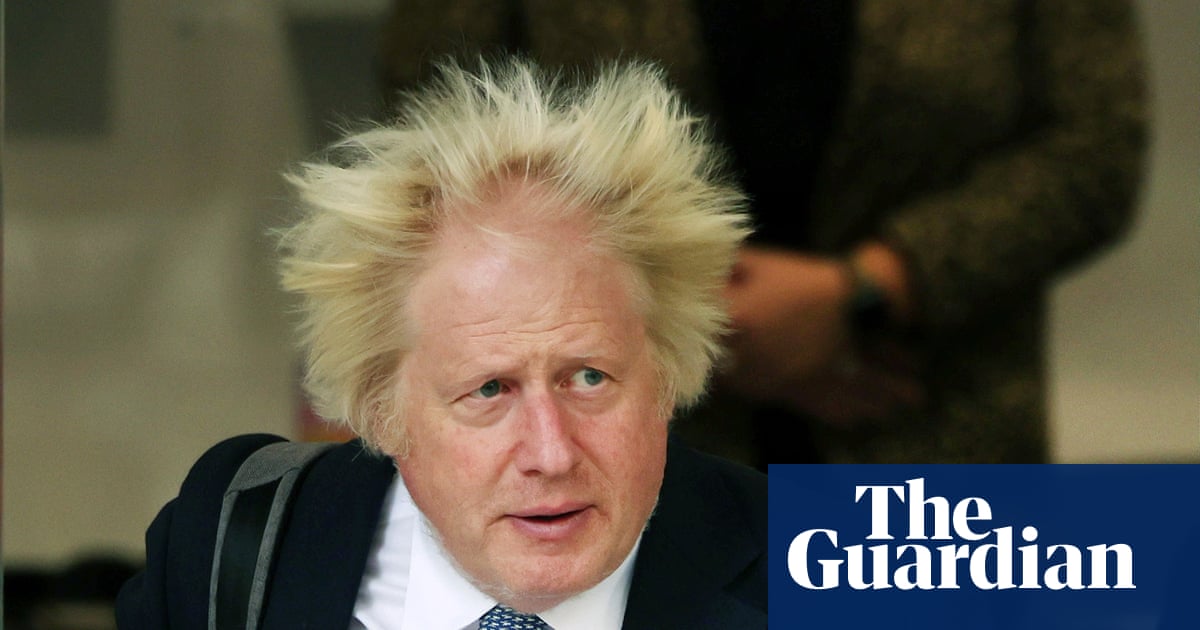


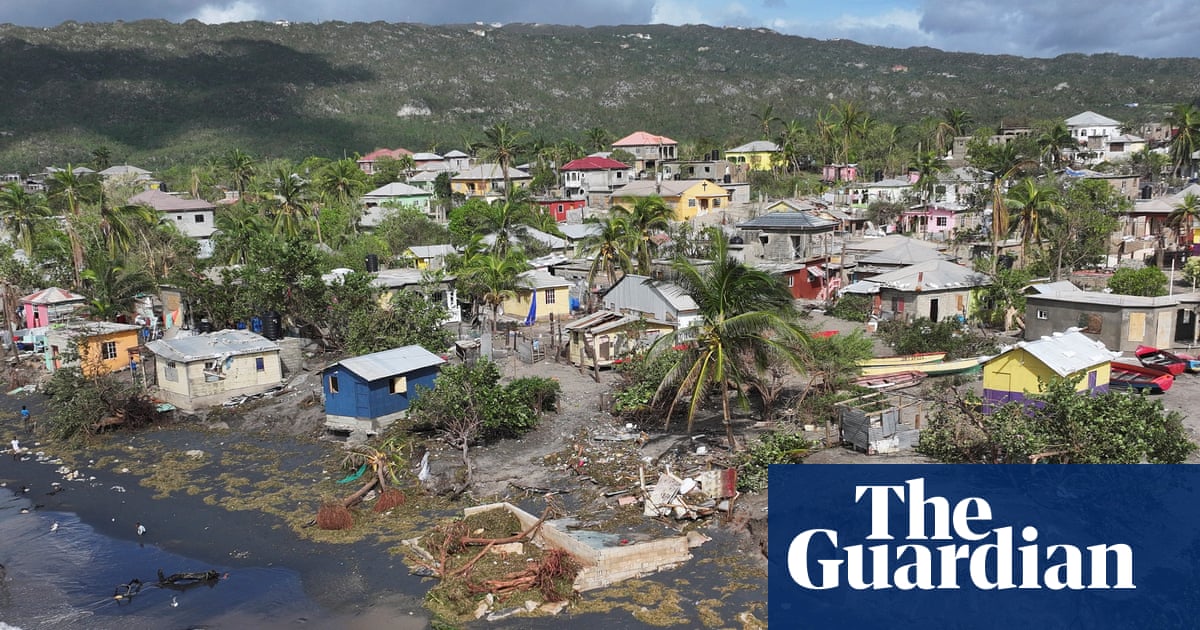

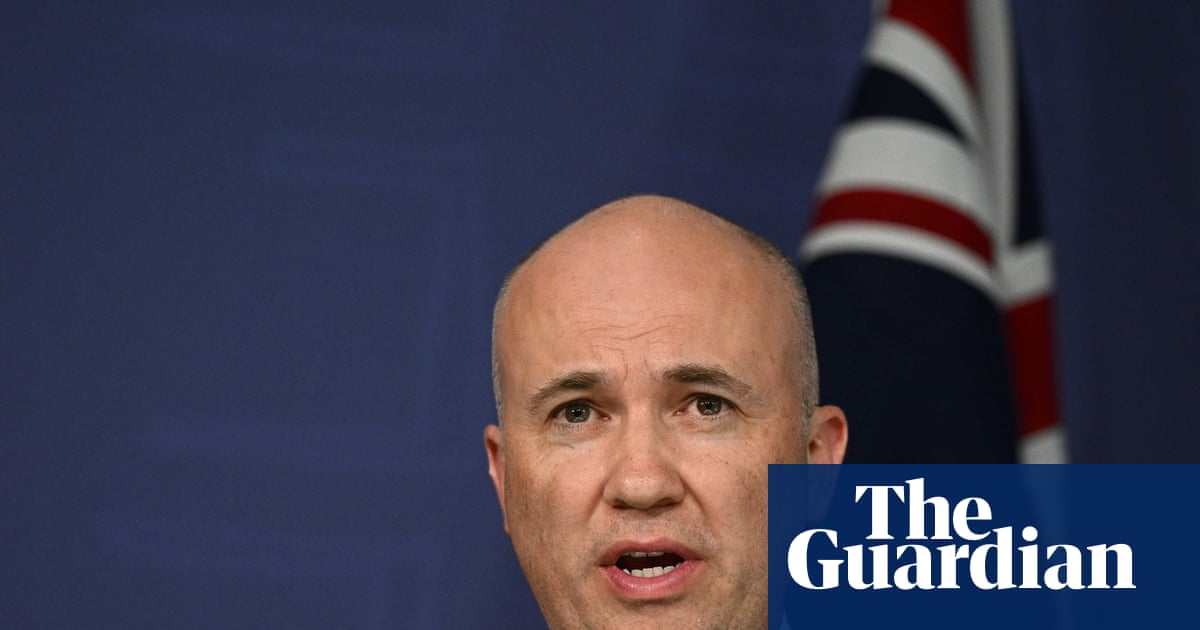














 English (US) ·
English (US) ·  French (CA) ·
French (CA) ·